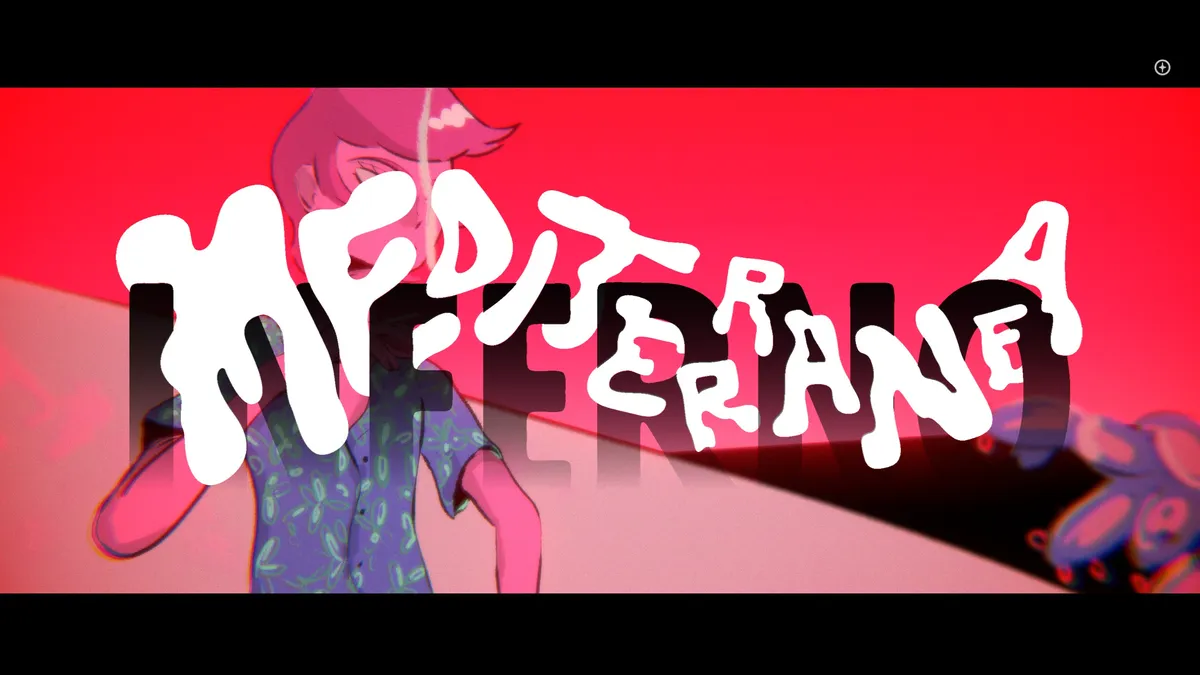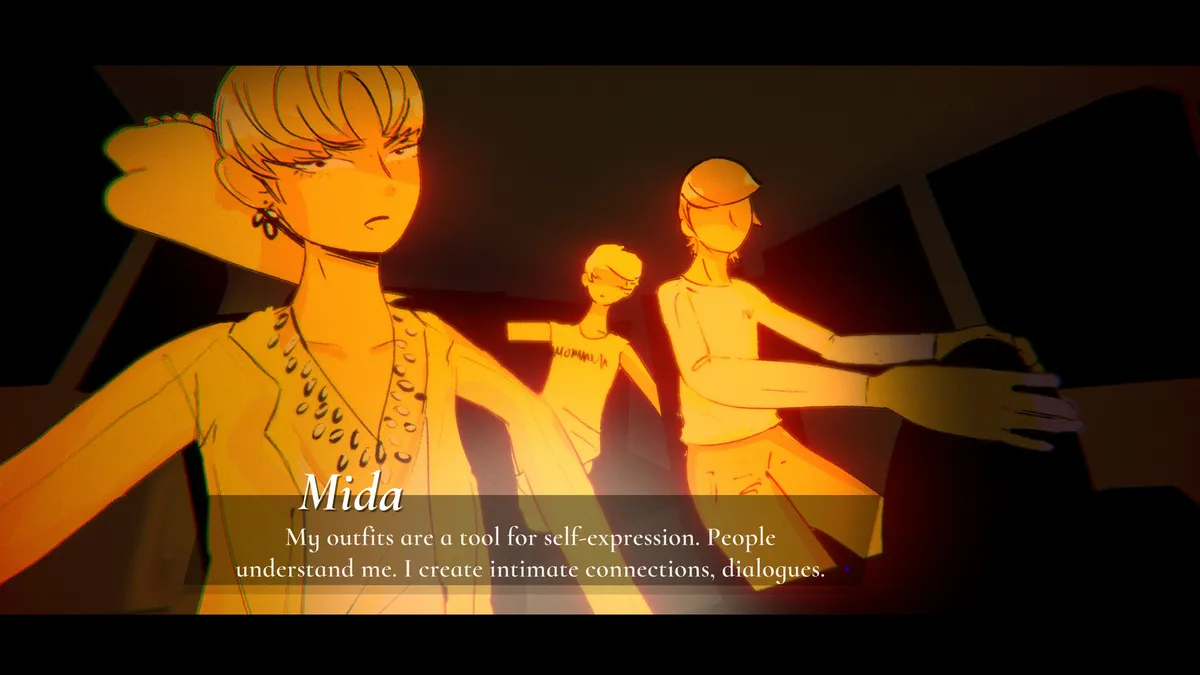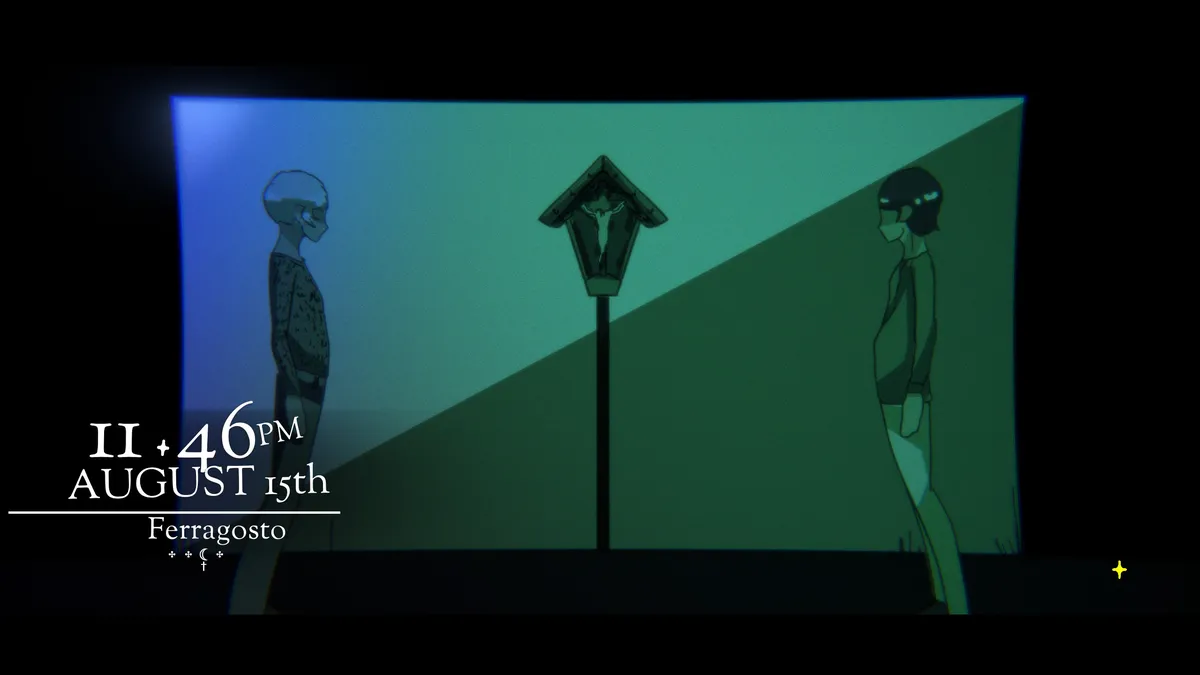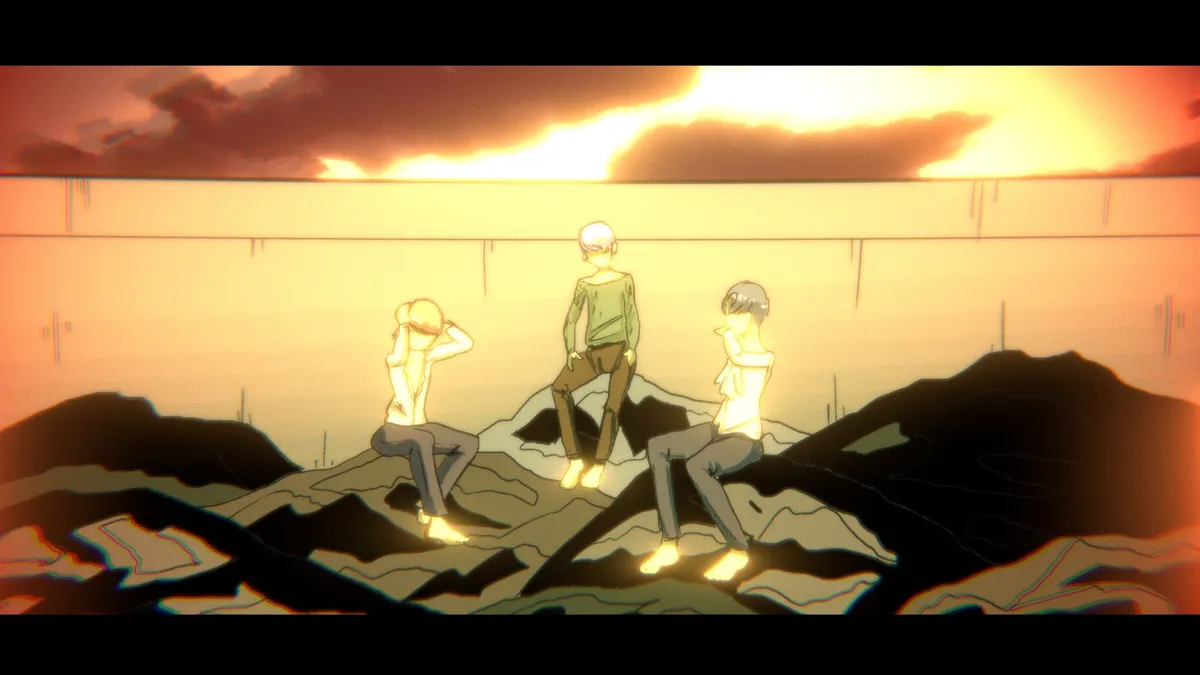mediterranea inferno
have wanted to play this since it made a splash at the IGFs this past year. I'm glad that I played it and I think it does a lot of things very well and a small set of things a little poorly.
it's impossible not to play this and feel like it's a We Know the Devil-alike. three early-20s gay Italian boys reunite for a summer trip after two long years of pandemic lockdown. covid looms large over the story, affecting all three men in different ways. Claudio, our "main character" by virtue of being the one that the prologue highlights, clings to past glory as a shield against the despair of a lost future. Andrea, the life of the party, is touch-starved and desperate to reconnect with the world to prove that his youth and his friends haven't both abandoned him. Mida, an ice queen that's always the target of jokes, has become an international sensation through social media fashion, and wants to lord his new success over the friends whose default mode is to ridicule him.
All three of them have baggage, and choosing what you do on your vacation to either indulge or snub the members of the trio also opens the door to Mirages: dreamlike fantasies that reward each young man's most visceral desires. Not only is it a trip, but collecting four Mirages will open the door to heaven, or so claims trickster-temptress demon Madama.
Everything is drenched in light, in color, and in sex. There's a playful, cartoonyness to the boys' lewd dreams, both about what they most want from the world and about each other. Technology, drama, and hyper-Catholic imagery pervades. It's a whirlwind of interesting visuals and dreamspaces that are periodically a little tricky to navigate - although the true frustration doesn't land until you get to an escape sequence near the end of the game.
Each loop seems to end in tragedy. Like WKTD, the devil can get you when you're most alone, and with a web of toxic friendship like these three have, it seems altogether too easy for things to trip over into misery. I say "loop" because you're able (and encouraged) to replay the days making different choices in pursuit of a "true end", found by collecting Saint cards. It's here that the game's charm really begins to wane: having to hear things I've already had explained to me that were already hinted at more tactfully and more tersely feels overwrought. The game becomes a chore instead of an experience.
I'm not a young man and my experience of queerness is far removed from the drug-drenched nightlife existence of these rich young boys - but the writing (exceptionally well-translated into English by Arden Ripley) makes their experiences suitably relatable, even when the boys themselves are acting wretched. There's an exceptional sequence at the end where the boys go to a dinner where other friends of theirs calmly and constructively call them each out on their bullshit - a sequence that really does a good job of highlighting what a bad time they're all having, and that they have only themselves to blame.
I'm also not Italian. The experience of being Italian in this day and age is clearly something the game is in conversation with. It didn't fly by me, exactly, but it feels as if it's in dialogue with things I simply haven't heard or read, and I'm excited to try and find some writers who can speak to that aspect of the game more fully.
All in all - a good game, and worth the attention showered upon it.



